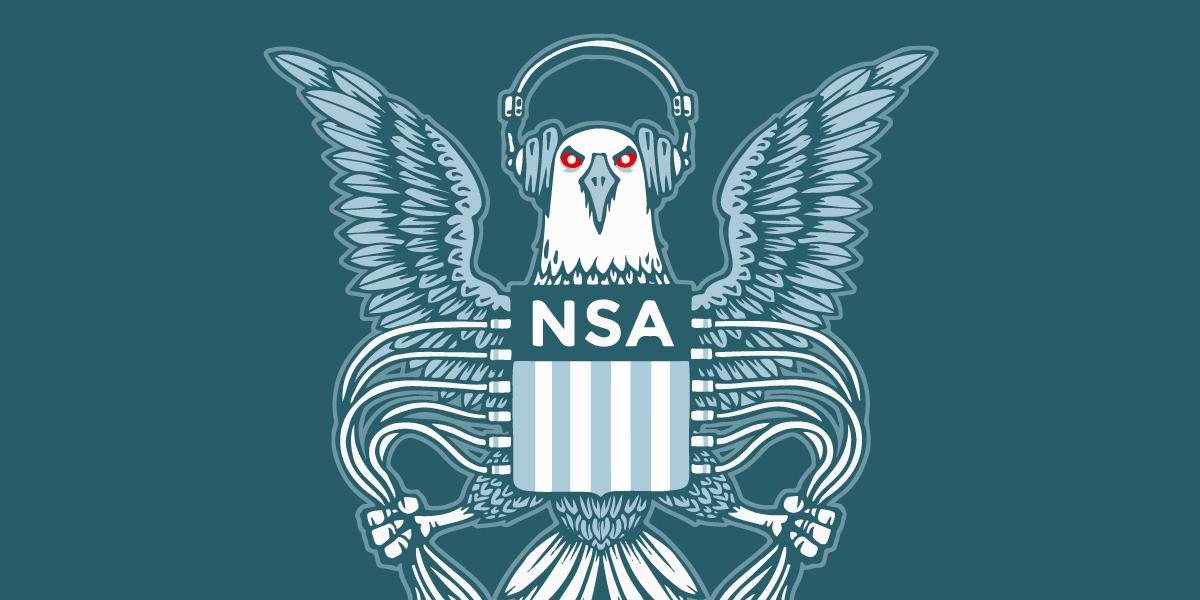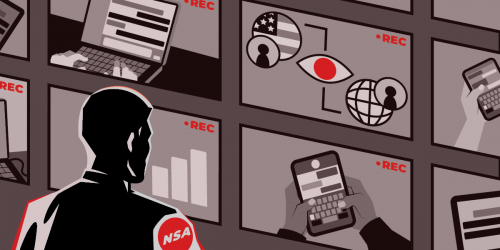Last week, FBI Director Christopher Wray faced questions from the House Judiciary Committee about how his department is implementing one of the government’s most powerful surveillance tools. Despite repeated bipartisan requests, Director Wray refused to tell the Members of the Committee how many Americans have been impacted by Section 702, enacted as part of the FISA Amendments Act. This isn’t the first time the FBI has refused to answer to Congress.
EFF has long held that Section 702 is being used to violate the privacy guaranteed by the Fourth Amendment. Section 702 authorizes the acquisition of foreign intelligence information; however, because many Americans communicate with foreign persons outside the United States every day, our communications are also being captured and read without a warrant.
How many Americans have had their communications “incidentally collected” under Section 702? We don’t know. In fact, not even Congress knows. Although the House Judiciary Committee has sent several bipartisan letters to the Office of the Director of National Intelligence asking this exact question, ODNI has refused to respond.
At the hearing last week, Rep. Ted Poe (R-TX), asked Director Wray to provide information on the number of Americans impacted by Section 702, saying, “this committee has asked for a long time to give us that information. My opinion is that the FBI and the intelligence service is back-walking that information because they know FISA [i.e. Section 702] comes up at the end of this year, and then Congress will just reauthorize without knowing how many Americans are searched.”
The FBI has also refused to estimate how often it warrantlessly queries databases containing incidentally collected communications using Americans’ identifiers as search terms, a practice known as “backdoor search.” Rep. Poe pressed Director Wray on backdoor searches as well, giving him an ultimatum: “I hope you can provide us that information before we reauthorize FISA, otherwise I'm going to vote against FISA.”
But Wray still didn’t answer these questions. Instead, he claimed that “every court” to have heard arguments against how the government uses Section 702 has found “no abuse” and concluded that it’s being done “consistent with the Fourth Amendment.”
Director Wray is wrong. In 2016, the Ninth Circuit Court of Appeals upheld the use of Section 702 in United States v. Mohamud, but the court specifically said that its decision did not “involve the retention and querying of incidentally collected communications,” i.e. backdoor searches. And when the Foreign Intelligence Surveillance Court of Review (FISCR) upheld warrantless acquisition of foreigners’ communications under an earlier law, it did so because it believed the government would “not maintain a database of incidentally collected information from non-targeted United States persons” that it could search without a warrant.
Meanwhile, the NSA and the FBI won’t even tell Congress how many non-targeted United States persons are impacted by “incidentally collected” information under the 702 program. The FBI may believe it is using Section 702 authority “lawfully and appropriately for the good and protection of the American people,” as Director Wray put it. But using a surveillance power lawfully and appropriately means following the Constitution, answering reasonable questions from Congressional oversight committees, and ensuring that all Americans have the freedom to communicate without fear of government surveillance.
Chairman Goodlatte agreed with Rep. Poe, saying, “This is a reasonable request from the gentleman from Texas. It has been made in varying forms by this committee in a bipartisan way in the past, and we have not yet received the answers to those questions…. We think that you need to be forthcoming on this.”
Bottom line: if Section 702 is going to be allowed to continue, Congress must consider the impact it has on Americans’ privacy. The FBI (and the NSA) need to answer the question.









